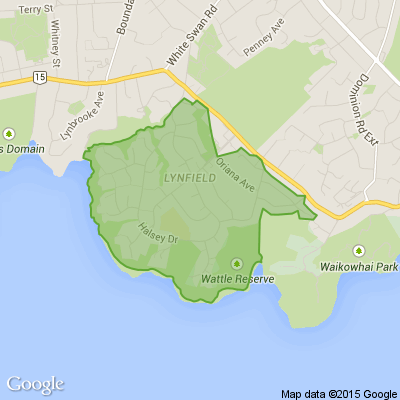The easiest foods to grow at home
Don't let those picked-over supermarket shelves stress you. It's easier than you might think to grow fresh veggies and herbs for yourself and your family.
By Lynn Coulter
The good news is that many fruits and veggies are easy to grow, even for beginners, and they’ll thrive whether you’re gardening in a backyard plot or in containers on your patio, porch or apartment balcony.
Grow beans in a snap
You might be surprised to know you don’t need a big garden to grow green beans. Bush beans are space-savers, but you can also grow beans vertically, by choosing pole varieties and training their vines onto a trellis, fence, or other support. Full sun, regular waterings and moderately rich soil will pay off in a plentiful harvest, and beans don’t need much fertiliser, although they’ll benefit from a side-dressing of compost in mid-season if you didn’t work a lot of compost into the soil before you planted. Check your seed packet to know approximately when your variety will be ready to harvest, and keep the plants picked so they’ll keep producing. Freeze your green beans to enjoy them all year long.
Plant prolific zucchinis
Zucchinis have a reputation for being so easy to grow, and so prolific, gardeners joke about having to leave their extras on a neighbour’s doorstep, ring the bell, and run away. Just one plant can yield 2.5-4.5kg of zucchinis in a single growing season. Plant their seeds directly in your garden or a large container. They need full sun and moist, easily-draining soil amended with compost. Give them a couple of centimetres of water each week, if there’s no rain, and harvest when the fruits are small (botanically speaking, zucchinis are fruits) and the skins are tender. You can freeze zucchinis or bake them into breads, slice them into strips for pasta, grate them for fritters or chop them into vegetable chillis. They’re also delicious when you know how to roast vegetables until they’re crispy and caramelised.
Raise crunchy radishes
Many gardeners love fresh radishes for that crunch that you get when you bite into them – but these simple root veggies are good for more than eating. Because the seeds sprout quickly – often within a week – you can use them in the garden to mark the rows of other crops that don’t come up as fast. Simply sow the seeds outdoors about 1-2cm deep as the temperature cools. Wait ten days and plant again for a continuous crop. They’ll thrive in a sunny spot that has loose soil amended with organic matter. Thin the seedlings to 5cm apart, so their roots won’t be crowded, and keep the plants evenly moist. Some varieties are ready to harvest just three weeks after planting.
Cultivate cucumbers
Like zucchini, cucumbers are prolific and easy to grow. Just give them a spot with moist, fertile soil and lots of sunshine. Start the seeds a couple of centimetres deep into the ground. They’ll sprout in a few days. Keep them happy with regular waterings and, if you didn’t work a lot of organic matter into the soil before you planted, side-dress them with a balanced, soluble fertiliser when the fruits set. The cucumbers are ready to harvest when they’re still small and the skins are tender. To keep a steady supply for the table, make successive plantings. If you’re short on space, train vining cucumber varieties onto a support like a fence or trellis, or plant a bush variety in a container or raised bed. Use your cukes in salsas, salads, gazpacho and smoothies or turn them into pickles.
Crack out some capsicum
Capsicums thrive in sunny climes, so make sure they have a warm, sunny spot not prone to wind or frost. They can also be grown in pots. Capsicums like a deep, warm, well draining soil, mulch and room to breathe, so leave about 50–60cm between your capsicums when planting out. Prepare the soil a month before planting by throwing in some fertiliser, then mulch.
Plant tasty tomatoes
The hardest thing about growing tomatoes might be choosing your favourite kind. There are cherry tomatoes, grape tomatoes, heirlooms with rich flavours, Romas for stews, pasta and sauces, and hearty beefsteaks. Gardeners in cool regions may want to start with transplants to save time over growing tomatoes from seeds. The plants need full sun and soil that drains easily. For best results, your soil should contain lots of compost and be slightly acidic, with a pH of 6.2 to 6.8. As the plants grow, apply a fertiliser recommended for tomatoes as directed on the label. This raised garden bed with an automatic watering system makes it easy to grow compact or patio-type tomatoes, even in a small space.
Sow lettuce for salads
Lettuces are great for beginning gardeners. They grow fast, take full sun but tolerate some shade, and can be tucked between other fruits and veggies or into containers. They’re also available in lots of tasty, colourful varieties. If you don’t have an ideal garden spot – for example, your soil contains a lot of clay or rocks – use a raised bed instead. Add good quality planting soil, you won’t have to dig. The loose soil will also make it easy to pluck any weeds that pop up. Sow your lettuce seeds in early autumn or spring and keep the plants watered regularly. Lettuce started in spring will last until the summer heat arrives and autumn-sown lettuce will grow until a killing frost. Harvest the outermost leaves first but don’t pull up the plants, so they can keep producing.
Set out onions
Make a little hole in the ground, tuck in a bare-root onion seedling, and stand back. In two or three weeks, the small plants will be ready to pull and use as green onions, or you can wait until the bulbs are bigger and then harvest them. Mature onions will let you know they’re ready when their tops turn yellow and bend over. Just brush off the soil and put the onions, with the tops still attached, in a warm, dry, well-ventilated place to cure for a week to 10 days. Then remove the top foliage and roots and store the onions in a cool, airy place until you’re ready to use them. Slice and fry them for onion rings, chop them for salsas and salads, or grill, roast or pickle them. Chopped or sliced onions can be refrigerated in sealed containers for seven to 10 days.
Fill a windowsill with herbs
A herb garden makes a thoughtful gift for a housebound friend or a fun and easy growing project you can enjoy without leaving home. Although the types of herbs you’ll want to include may vary, good choices include basil to make into pesto, mint to steep for tea or dill to add flavour to homemade pickles. So many herbs are easy to grow, you may not want to stop.
Happy Gardening
Baptist Lobo
Practicing Chartered Accountant
Poll: Should the government levy industries that contribute to financial hardship?
As reported in the Post, there’s a $30 million funding gap in financial mentoring. This has led to services closing and mentors stepping in unpaid just to keep helping people in need 🪙💰🪙
One proposed solution? Small levies on industries that profit from financial hardship — like banks, casinos, and similar companies.
So we want to hear what you think:
Should the government ask these industries to contribute?

-
59% Yes, supporting people is important!
-
26% No, individuals should take responsibility
-
15% ... It is complicated
Have you got New Zealand's best shed? Show us and win!
Once again, Resene and NZ Gardener are on the hunt for New Zealand’s best shed! Send in the photos and the stories behind your man caves, she sheds, clever upcycled spaces, potty potting sheds and colourful chicken coops. The Resene Shed of the Year 2026 winner receives $1000 Resene ColorShop voucher, a $908 large Vegepod Starter Pack and a one-year subscription to NZ Gardener. To enter, tell us in writing (no more than 500 words) why your garden shed is New Zealand’s best, and send up to five high-quality photos by email to mailbox@nzgardener.co.nz. Entries close February 23, 2026.

A Neighbourly Riddle! Don’t Overthink It… Or Do?😜
Do you think you know the answer? Simply 'Like' this post if you know the answer and the big reveal will be posted in the comments at 2pm on the day!
If you multiply this number by any other number, the answer will always be the same. What number is this?








 Loading…
Loading…